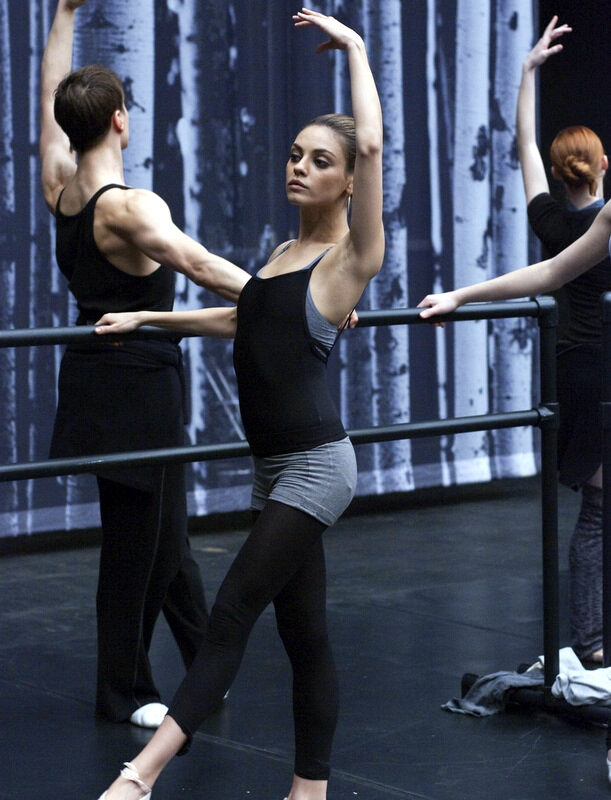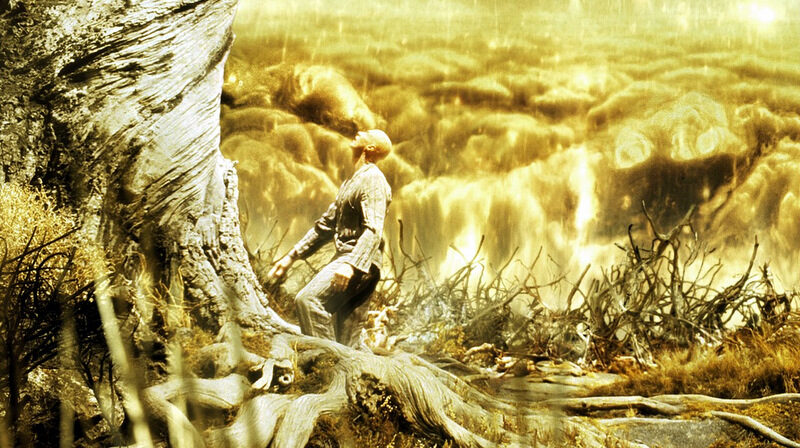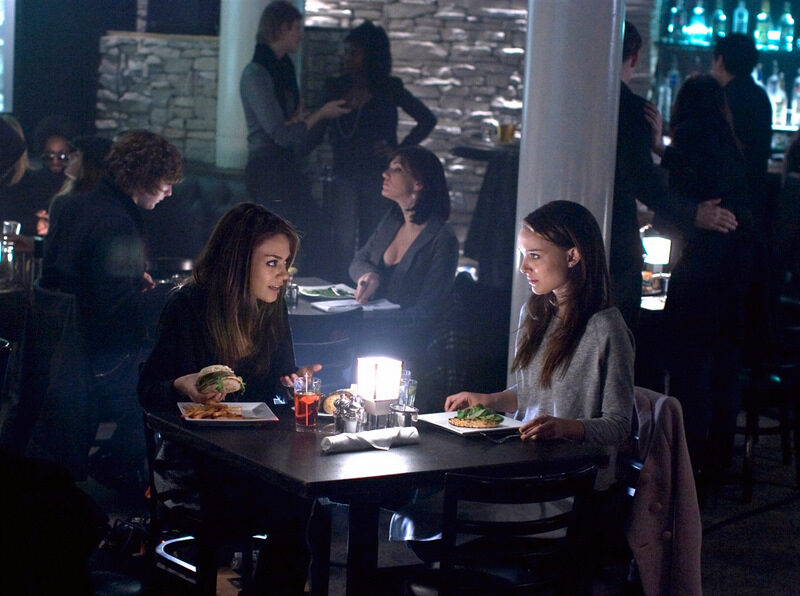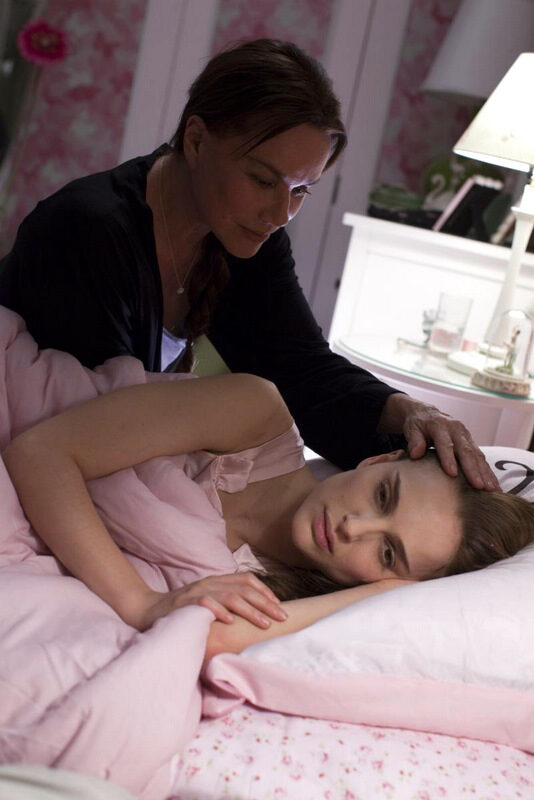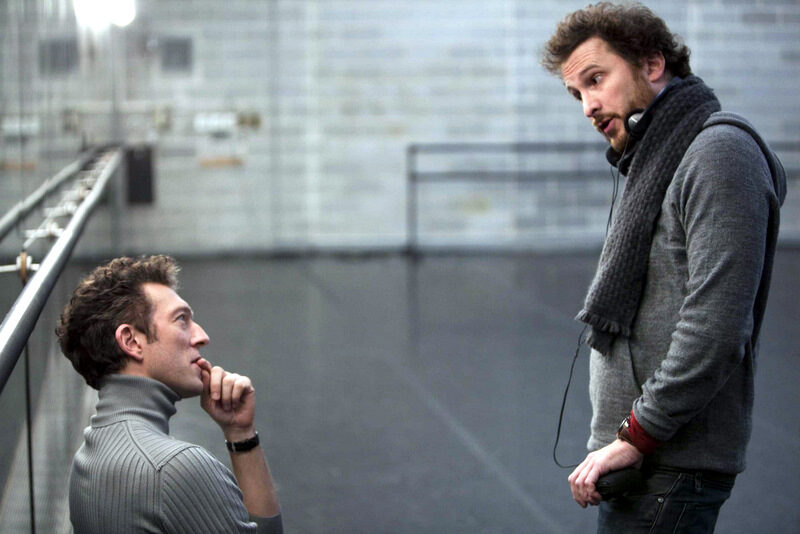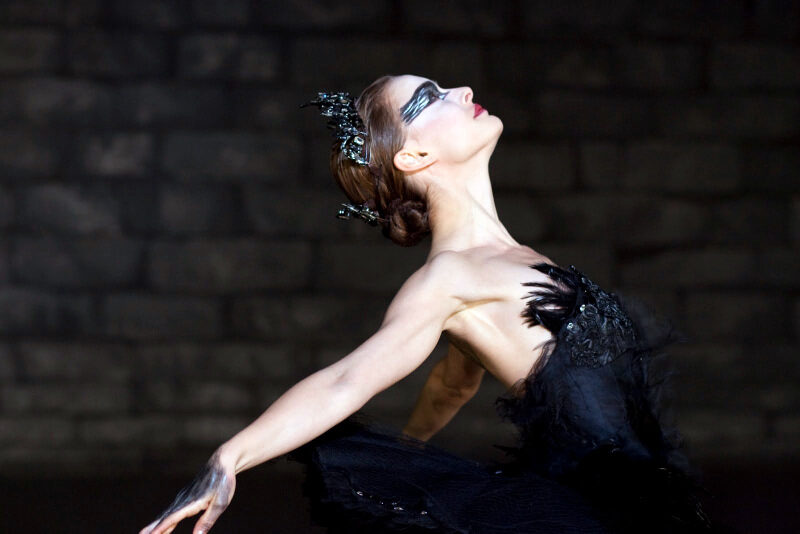Black Swan: Interview with Darren Aronofsky | Clothes on Film
Director Darren Aronofsky came to prominence with 1998’s Pi, a bold and imaginative take on the body shock genre. His latest film Black Swan harks back to that work; the tale of a young ballerina undergoing psychological transformation, her identity thrown into question on the most visceral of levels.
Clothes on Film spent some time with Aronofsky, picking his mind on the challenges of portraying such specific concepts as perfection, representation and commitment within the film.
Clothes on Film: How do you plan your projects? Your work is so diverse.
Darren Aronofsky: I think it’s a case of double down every time, chips are on table; each one’s just about taking a risk, taking a chance. Every one was as risky as the last one and I think that that’s just because I want to keep myself interested and keep myself passionate, and not make safe bets all the time. I want to do something that excites me.
CoF: Do you not ever feel like taking the easy route and doing something easy?
DA: Very much so. It’d be nice to make a movie that other people want to make! With every one of these movies I basically have to find the one company in the world that’s willing to make it, and it’s always a big challenge and I end up spending a tremendous amount of energy and time trying to get money to make these movies and that’s kind of exhausting.
CoF: Is that what has led you to The Wolverine?
DA: I don’t know what you’re talking about…!
CoF: Speaking of which, you’ve worked in the comic-book medium before, with your adaptation of The Fountain (2006), and the tie-in book to Pi. Do you ever feel like realising your vision of something like the Batman story that you were working on as a comic book?
DA: Well, we’re actually doing one. It hasn’t really been announced, I don’t know if I should give you the scoop! But we’re getting there. We’re doing a comic book of a script that’s really hard to make and we’re going to do a comic version first and see what happens…
It seems like if you come up with an original script, in Hollywood it’s not as effective as a comic book. It doesn’t even have to be successful as a comic; I mean how successful were Kick-Ass or Scott Pilgrim? Those were fringe comics, right, and they were basically turned in to big pictures.
CoF: They were popular for comics…
DA: Yeah, but what are you talking about? 50,000? 100,000? Scott Pilgrim – how big of a comic was it? I didn’t even know it. It was very underground.
CoF: You’re saying here that you’re taking unfilmable scripts and turning them into comics, but then you’re saying that you’re making films that no one else wants to make. Do you not worry you’re narrowing your audience even more?
DA: You work really hard on something and want to get it out there. The reason that The Fountain comic exists is because for a long time we didn’t think that the film was going to happen, so I went after an artist because I wanted to get that finished and out there. I’m a storyteller, so if I can’t tell it in my medium of choice I try to do it another way.
CoF: You’re primarily known as a visual filmmaker, but recently, with Mickey Rourke’s success in The Wrestler and Natalie Portman tipped for Academy Award recognition with Black Swan, do you think you’re going to become more known as an actors’ director in some respects?
DA: I hope so. That’s my favourite part of the process. Working with Ellen Burstyn on Requiem for a Dream (2000) was my biggest thrill and that kind of set me down the path of really focusing on actors.
CoF: Having marshalled those complex scenes on Black Swan, have you any interest in actually working on an actual ballet?
DA. Well, me and Benjamin Millepied, our choreographer, have been talking about doing some kind of ballet version of the film, taking Clint Mansell’s music and some of the choreography and doing that, but I don’t know where we would get money for something like that! Chasing money for ballet seems harder than chasing money for movies!
CoF: Did you take a look at The Company (2003), the Robert Altman film?
DA: Well, it came out when I was first looking at doing a ballet film. I think it’s a terrible film, sorry, but most films in the ballet world, beside The Red Shoes, are pretty awful. That film at least was realistic, but all it really was was a concert film. I really wasn’t into it. I’m trying to think of other films set in the ballet world. Center Stage….
CoF: A prominent aspect of Black Swan is the idea of a director pushing a performer towards perfection. Is there a commentary about this in the film?
DA: I see that now, but doing the film it wasn’t really on my mind. I wish I could be as manipulative as Vincent’s (Cassel) character is. He’s a true master manipulator. I’m very direct and probably to a fault with actors, and I’ve probably scared away a lot of A-list actors because I tell them how much of a pain this process is going to be. So that’s why if you look at the actors that I’ve worked with, outside of Natalie Portman, they’re usually looking for the opportunity to stretch their wings. Even Natalie; she hadn’t been given a leading role in quite some time.
CoF: Was the story’s sexual element always in the script from an early stage?
DA: I don’t know about an early stage, but that became a big element; a girl turning into a woman, losing her virginity and having her first orgasm!
CoF: Which do you think has been the most traumatic experience then, for an actor working on one of your films?
DA: I don’t think they’re traumatic experiences as such, but in terms of emotionally draining I don’t think anyone has worked as hard for me as Natalie, and that’s because of the dance. It’s an unbelievable accomplishment what she’s done physically. Ninety per cent of the dancing on screen is her. That is unbelievable. These dancers train from the age of four, for twenty years to get to where they are and to physically pull that off, and actually emote, to tell a story throughout, is really an accomplishment.
CoF: Is it a comment on method acting, the way the character is pushed to make personal the performance?
DA: I’m pretty critical of the method. I used to think it was cool, but watching Ellen Burstyn and being around a couple of the old masters I think it’s actually pretty selfish. It’s just make believe you know, there’s a half a million dollar camera sitting there and forty lights, and you’ve got to hit a technical mark; what is the “method” when it’s such a technical job? It’s about make believing for a very, very short window. I think the method could work if you’re on stage, when you’ve got to stay in character and keep the adrenaline running that makes sense, but film is literally little burst of acting, 20 seconds here, 20 seconds there, 10 seconds there, but once it takes over you don’t need to be an asshole all day. To me it doesn’t impress me, actors that do that; it’s a lot of wasted energy.
CoF: How hard do you work your technical department?
DA. It was very complicated. All the dance sequences take a lot of time. First, I’d talk to Benjamin about which part of Swan Lake to use and then he would sort of modernise it. Eventually he would dance it while me and Matty Libatique, my cinematographer, would come in with a camera, and dance with them and try to get a cool shot on video and when we had worked that out and would come to shoot it on the day there would be issues with spotlights and shadows and the like. Technically speaking it was a jigsaw puzzle.
CoF: Flashback to 2008 and you’d have The Wrestler coming out at the same time as Benjamin Button and Slumdog Millionaire, and right now we have The Social Network and 127 Hours…
DA: Yeah, it’s unfortunate that I have to be on cycle with David Fincher and Danny Boyle. I mean two of the best living directors…
CoF: The three of you are three of the most versatile directors in Hollywood. Do you look to them as contemporaries, or for inspiration?
DA: I look up to them, I don’t consider them contemporaries. They’ve been making films for a lot longer than me, and incredible movies. I mean Fincher is one of the greats, he’s a true master, and Boyle as well, so the fact that I’m even in the same sentence as them means a lot.
Black Swan is released in the UK on 21st January.
By Adam Batty
Adam Batty is founder and editor of perfectly tailored blog Hope Lies at 24 Frames Per Second.
© 2011, Chris Laverty.
Related Posts:
